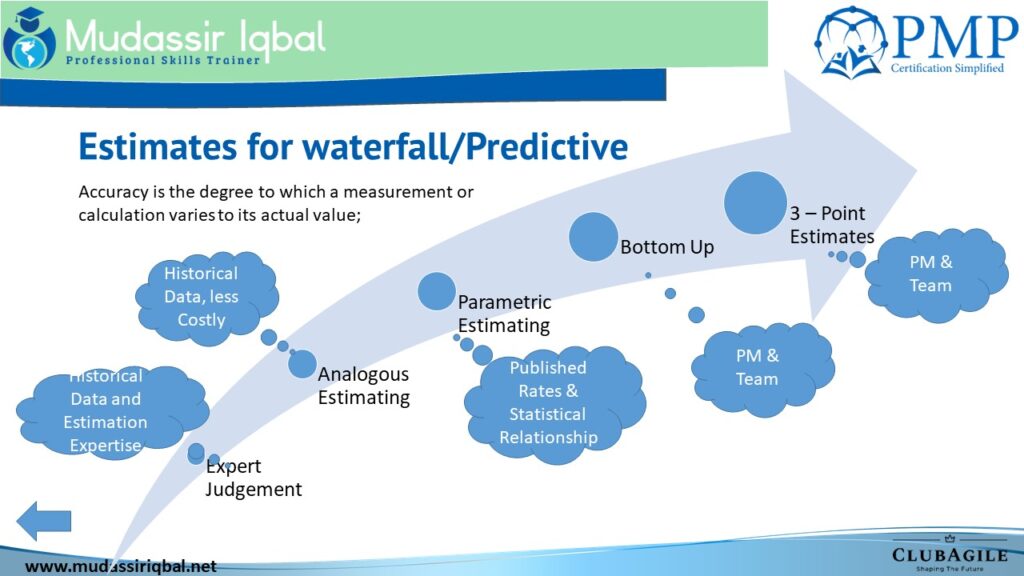In project management, cost and schedule estimation refers to the practice of projecting the amount of time and money required to accomplish a project. This process entails identifying and assessing all essential tasks, defining the resources (e.g., people, materials, equipment), and estimating the duration of each activity. The information gathered and processed through estimation is used to produce a project schedule and budget, which are subsequently utilised for project planning and management. As they are used to make decisions on resource allocation, project timetables, and overall project feasibility, the precision of cost and schedule estimates is crucial to the success of a project.
Project Estimation Techniques
The process of determining the resources and time required to complete a project. It is an important step in project planning and management, as it allows project managers to set realistic expectations, allocate resources effectively, and identify potential risks or challenges that may arise during the project. There are several different techniques that can be used for project estimation, including:
- Expert judgment: This approach involves consulting with experts in the field or industry to get their input on the estimated time and resources required for the project.
- Analogous estimation: This approach involves using historical data from similar projects to make an estimate for the current project.
- Bottom-up estimation: This approach involves breaking down the project into smaller tasks and estimating the time and resources required for each task.
- Three-point estimation: This approach involves creating three estimates for each task or activity in the project, a best-case, most-likely and worst-case scenario.
- Parametric estimation: This approach uses statistical data and mathematical models to estimate the cost and duration of the project.
The choice will depend on the specific characteristics of the project, the available data and resources, and the level of uncertainty involved.

Summary
Project estimation is the process of determining the resources and time required to complete a project. There are several different techniques that can be used for project estimation, such as Expert judgement, Analogous estimation, Bottom-up estimation, Three-point estimation and Parametric estimation. Each method has its own advantages and disadvantages, and the choice of technique will depend on the specific characteristics of the project, the available data and resources, and the level of uncertainty involved. Overall, the goal of project estimation is to set realistic expectations, allocate resources effectively, and identify potential risks or challenges that may arise during the project, so that project managers can make more informed decisions and increase the chances of project success.


One thought to “Project Estimation Techniques : PMP/CAPM”
Pingback: Unlocking Success: Mastering the Essential Process Flows of Project Management (PMP/CAPM) - Mudassir Iqbal